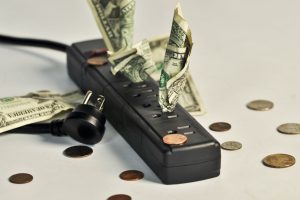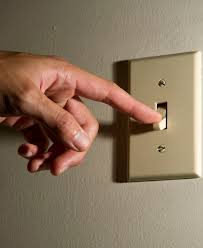 Congratulations to CUB’s Energy Myths Quiz winners: Regina from Aurora and Patricia of Oak Lawn! They each won $100 off their October utility bills for taking the time to bust some energy myths.
Congratulations to CUB’s Energy Myths Quiz winners: Regina from Aurora and Patricia of Oak Lawn! They each won $100 off their October utility bills for taking the time to bust some energy myths.
Whether you took the quiz or not, check out the answers below to see how your energy use is costing or saving you money.
1. True or false: It uses less energy and is therefore cheaper to leave lights and appliances on rather than turning them off and back on again.
Answer: FALSE. In almost every case, leaving lights on uses more energy than turning them off and on. Incandescent and halogen lights are especially inefficient, with up to 90 of the energy they use given off as heat, so they should be switched off when not in use—both to save money on unneeded lighting and to reduce the heat in the room during the summer so your AC will not have to work as hard.
2. Which statement about alternative suppliers is true? –Alternative suppliers’ prices are always cheaper because they have to compete with the regulated utility as well as other suppliers. -Signing up with an alternative supplier protects me from rate hikes by the regulated utility. -I may be signed up with an alternative supplier and not know it.
Answer: I may be signed up with an alternative supplier and not know it. An unscrupulous salesperson can sign you up just by looking at your utility bill or learning your phone number. Charges from alternative suppliers are included on the bill you receive from your regulated utility. Some utility bills are not designed to be easy to read and it may not be obvious that you have an alternative supplier. Some consumers don’t know they’re with an alternative supplier until their bills get out of control and they ask CUB for help.

3. True or false: Going with an alternative supplier’s 100% green plan means I’m getting 100% renewable energy pumped into my home.
Answer: False. Signing up for a green plan does not mean that the electricity supplier will send energy produced by a solar or wind farm directly to your home. Instead the company will take some of your money to buy Renewable Energy Certificates, or RECs, to offset up to 100 percent of the energy that you use. One REC is created for each megawatt-hour (1,000 kilowatt-hours) of electricity produced by a renewable energy generator, like a wind turbine or a solar panel. Consumers almost always pay a premium for these green plans—but the quality of the RECs vary. Shop carefully.
4. If you’re having trouble paying your utility bills, you are protected from getting your service shut off as long as: -Temperatures are extreme. That is, you can’t get your electricity shut off in the summer or your gas shut off in the winter. -You’re on the life support registry or have a permanent medical condition. -You pay the utility at least something toward your balance. -You didn’t pay a deposit. -All of the above. -None of the above.
Answer: None of the above. If you get a disconnection notice, the fine print on the back of the notice should spell out most of your rights. Whatever your circumstances, don’t ignore a disconnect notice and don’t ever stop dialing up the utility and consumer advocates like CUB (1-800-669-5556) to find out what your rights and options are.
5. True or false: Though it may be tempting to just weatherize your windows it’s always better to replace them with new efficient models.
Answer: False. It’s not always best to replace your windows—despite what door-to-door sales reps might say. While the best move for some homes might be new, efficient windows, the price tag means it could be a long time before you break even on savings. You might get a bigger bang for your buck by simply sealing cracks and leaks around your windows and taking another efficiency actions around the house, like, for example, adding insulation in the attic.
For more tips on energy efficiency, check out CUB’s fact sheets on our Clean Energy page.

